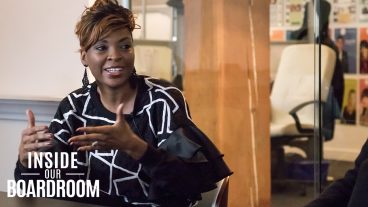While growing up, instead of playing outside Risha Grant was inside “playing” school — learning to count, read, and write just in case her darker skin tone cheated her out of an equal education. She would later learn how experiences like these fed her bias, and use that realization to change the world.
Now Risha is the founder and CEO of an award-winning diversity consulting and communications firm. She is on a mission to show how diversity communication strategies, tactics, and training can create an inclusive culture in every company and, as a result, increase the bottom line.
We sat down with Risha to learn more about bias and its impact in the workplace.
What is BS (Bias Synapse)?
Bias Synapse is a term I coined to help people understand the brain’s role in unconscious bias but it is also a play on the word bullsh*t. According to brain neurologist, Joseph LeDoux, we live our lives in the synapse of our brains, it’s where all memories are created, therefore it is also where our biases are created and live. A synapse is how our brain communicates between brain cells, ususally in one direction only as do our biases. When we put all people in the same box based upon their diverse characteristics, it’s bullsh*t and keeps our biases alive.
How does our personal bias influence our workplace?
How behavior shows up according to bias is different for everyone. The important thing to realize is that other people can feel the negative energy or the indifference. You are not hiding it. In our workplaces, it will show up as stagnation, loss of productivity and creativity. This eventually affects your competitive advantage and ultimately your bottom line.
How can we acknowledge our bias and break that cycle?
I have developed the BS Finder. It teaches you how to assess, attribute and identify your bias. In assessing it, first ask yourself, who makes you uncomfortable and why. In attributing it, is it their fault (that you feel as you do) or is it your issue and then identify whether you feel like this because of a deeply-rooted, long held belief, societal norms or a personal experience.
We break the cycle by owning our BS and then finding a way to confront it. This is usually done by putting yourself in proximity to those that you have identified your bias against.
On stage, Risha Grant draws on her passion, knowledge, and humour to empower attendees to engage with diversity and inclusion in their workplace. Her approach has helped NBA teams, governors, mayors, Fortune 500 companies, non-profit organizations, and community leaders to reduce bias and further their understanding of the importance of diversity and inclusion in today’s modern world.
Interested in learning more about Risha and what she can bring to your next event? Email us at [email protected].




